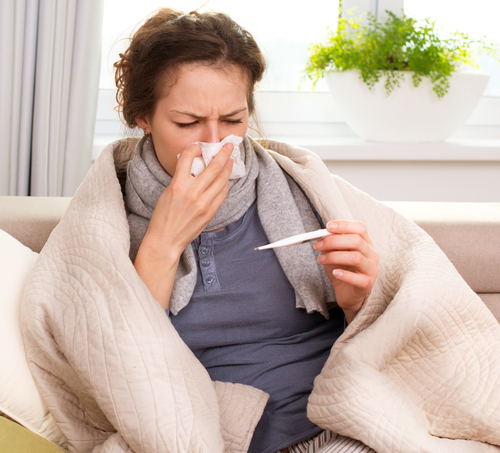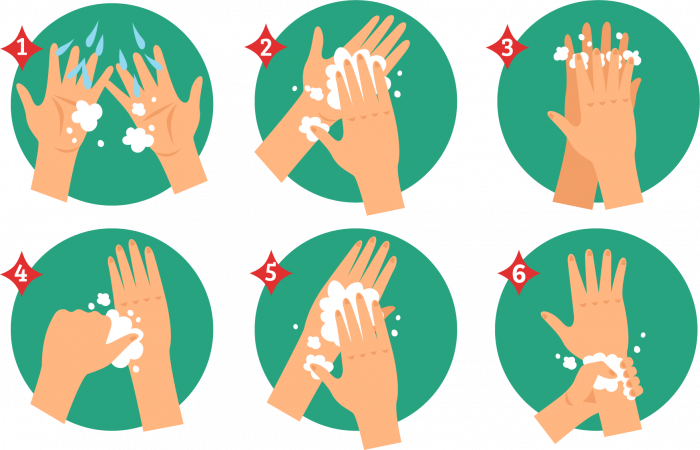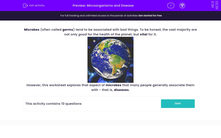Microbes (often called germs) tend to be associated with bad things. To be honest, the vast majority are not only good for the health of the planet but vital for it.

Microbes (short for microorganisms) are so small that we need a microscope to see them. They're so small that they can enter our bodies in lots of different ways. Most microorganisms don't cause us any harm but some can cause disease (these are called pathogens).
An example of a disease-causing microbe is a virus. They are so small that they can float around in the air, from one person to another, especially when they cough and sneeze, as when we have a cold. HIV (human immunodeficiency virus) which can lead to AIDS (acquired immunodeficiency syndrome) is an example of a disease caused by a virus.

Another example of a disease-causing microbe is bacteria. If food hasn't been stored properly or hasn't been cooked properly then we can get food poisoning. This is because salmonella bacteria will start to quickly grow on the food, making us feel sick once we've eaten it. We should ideally keep certain foods, such as dairy products, at cold temperatures. They tend to 'go off' quickly if kept out of the fridge. Milk, in fact, is heated to destroy the harmful microbes, allowing it to last longer. This is called pasteurisation, named after the scientist Louis Pasteur.

It's important to also store raw meat separately from cooked foods. The raw meat could have bacteria on it that could infect the cooked foods and can make us sick if we eat it.
We can also try to stop the spread of a virus through our behaviour.
We could sneeze into a tissue and make sure we throw it away after use. We can wash our hands regularly with soap and water, or use hand sanitisers after coughing or sneezing. We can make sure we wash our hands before eating or preparing food and after using the bathroom. We can also avoid really busy and crowded places so that we limit the spread of a virus. Recently, the use of face masks has increased due to the coronavirus (COVID-19) pandemic. The idea of keeping surfaces sterile and free from microbes to prevent infection is down to the work of scientist Joseph Lister.

All of these actions can help to stop the spread of disease-causing microbes.
Sometimes, however, we need medication to help us fight these pesky microbes. The scientist Alexander Fleming first discovered antibiotics. Medicines such as antibiotics work specifically to destroy bacteria that cause infections in our bodies.
The problem is that they have been used so much for so long that many of the most harmful versions of microbe are building up resistance to medicines like penicillin, meaning that it's becoming hard to treat certain diseases successfully. This is known as antibiotic resistance.

Another way to protect ourselves from disease is through immunisations. This process normally involves injecting a small quantity of an inactive microorganism into the body (a vaccination). This gives the body a chance to build up its own resistance to the disease.
When you build up immunity to a disease, like measles, it means that if you come into contact with the disease your body is able to fight it off without it affecting you. We can thank the scientist Edward Jenner for his work on vaccinations. It's because of his work that countless lives have been saved from deadly diseases.
In this activity, we will explore how microbes cause diseases.
Let's go!








